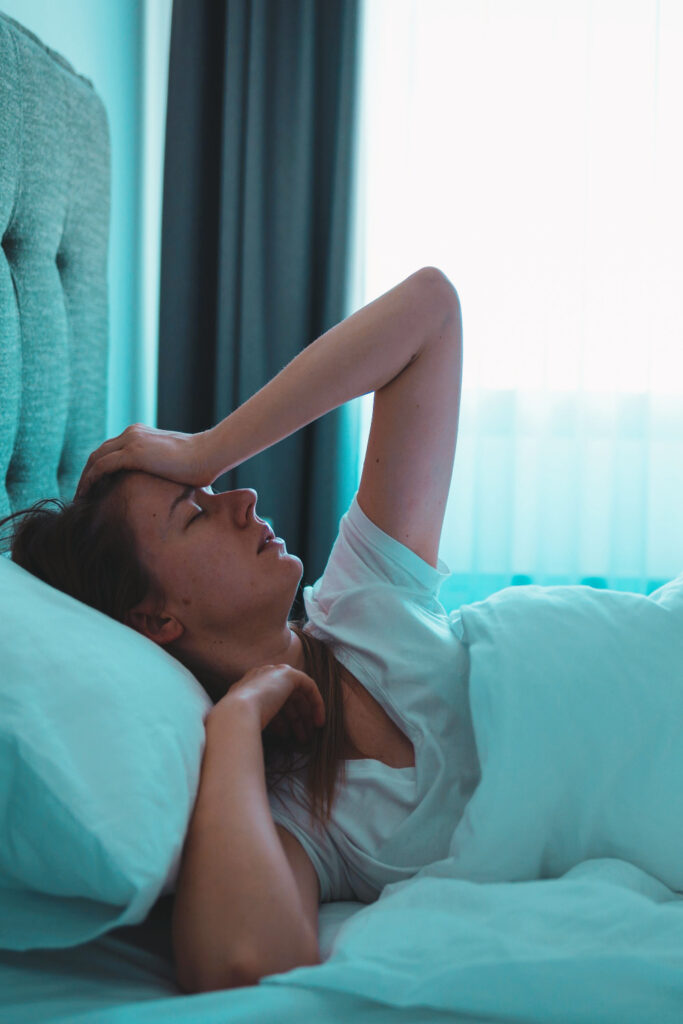Hey There!
I'm Reina
I am a full-time traveling registered nurse, fitness enthusiast, and nutrition expert. Every morning I wake up intending to bring awareness of the importance of health and spiritual wellness, especially to the traveling community. At Messy Bun Traveler, we promote travel that allows the traveler to either kick-start, maintain, or enhance a healthy lifestyle. So whether you're someone who travels for business, travels for pleasure, or new to travel and looking for health advice while on the road, this blog is for you!
inspiration
Categories:
health
destinations
fitness
resources
wellness
Privacy & Disclosure
The Messy Bun Traveler is designed to bring you fun stories, destination guides, and healthy travel advice. To help cover the cost of running this site, all posts are sprinkled with hand-selected affiliate links. When you click on one of these links and make a purchase, I will earn a small commission at no additional cost to you. I only accept affiliate links and paid advertisements from brands I believe in, trust and use personally. Thank you for your continued support!
Proven Ways to Overcome Jet Lag (That Actually Work!)
July 16, 2019

I want to share with you the story of Sarah Kransnoff, a 74-year-old woman who actually died from jet lag using frequent air travel.
It was the year 1971, Sarah and her 14-year-old grandson decided to binge on multi-continental flying (for reasons I have no idea- it’s rumored that she was protecting her grandson from a gruesome custody battle but still, super bizarre).
These two would fly from New York to Amsterdam, Amsterdam to New York continuously- without spending more than a day at each destination. They did this again and again, month after month.
Sounds pretty glamorous, right?
After roughly 160 flights, Sarah Kransnoff collapsed and died in her hotel room. After doctors identified what had happened to her, they determined that she inevitably died from “terminal jet lag.”
Now I know this is a super extreme case- and her age and ridiculous frequency of air travel most likely played a pivotal role in her death but; this incident proved that jetlag can and DOES have a substantial effect on people’s health.
What exactly is jet lag, anyway? What does it do to our bodies and our minds? Is there a way to avoid it? And more importantly, how can we overcome jet lag?


What is Jet Lag?
Jet lag is a temporary sleep problem that can affect anyone who travels across multiple time zones in a short amount of time (which is why it usually happens with frequent air travel). Your body has its own internal clock called a circadian rhythm, that regulates your body into keeping a continuous sleep/wake schedule.
When jet lag occurs, it’s because your body’s circadian rhythm is still in tune (yes, pun intended) with your original time zone rather than the time zone you’ve just traveled to.
Generally, the further you travel and the more time zones you cross, the more likely you’ll experience symptoms of jet lag.
Common Symptoms of Jet Lag
Generally, when someone experiences jet lag they suffer from an altered sleep cycle- either they have insomnia, wake up too early, or they are constantly sleepy no matter what time of day.
Other symptoms can include:
- difficulty concentrating or functioning
- stomach problems such as constipation or diarrhea
- a general feeling of not being well (some also associate this with post-vacation depression)
- mood swings
99 percent of the time jet lag is temporary, but it still can significantly reduce your vacation fun or level of function at work after your travels.
There is good news! There are some steps you can take to help avoid jet lag altogether!
How to Avoid Jet Lag
Each person reacts differently to jet lag, but there are some general tips that can help most people. Some of these include getting plenty of rest before your flight, drinking plenty of fluids, avoiding alcohol and caffeine on the plane, and moving around as much as possible during the flight.
Once you reach your destination, try to adjust gradually to the new time zone by going to bed and waking up at local times.
Finally, don’t stress out if you do experience a little jet lag – it’s nothing a few days of rest can’t fix! These are just some of the few ways to avoid feelings of jet lag:
Get plenty of rest before your trip.
Now I know there are many of you behind your computer screen or cell phone rolling your eyes right now. Most of us work our asses off (including myself) before a big vacation so we don’t have any leftover work that needs to be done.
But if you can make it possible, try and get adequate rest (like 6-8 hours per night) before your flight. Being sleep-deprived can just make jet lag worse.
Gradually adjust your schedule before you leave
If you’re traveling east, try going to bed one hour earlier than you normally would. If you’re flying west, you should try to go to bed one hour later.
Get plenty of sunlight
Light exposure is one of the prime influences on your body’s circadian rhythm (just ask anyone who’s worked the night shift and has to sleep during sun hours).
Stick to your new schedule
Set the clock to your new time zone before you leave the airport. Once you reach your destination, avoid sleeping or taking any naps until nighttime, no matter how exhausted you feel (coffee was created for a reason).
Make sure to stay hydrated
Drink plenty of water before, during, and even after your flight. The cabin air can be very drying when you’re breathing it in for 4, 8, and 13-hour flights. If you’re not drinking enough water, you’ll experience extreme dehydration.
Dehydration can make your jet lag symptoms worse (and increases your chances of getting sick). Try to avoid alcohol and caffeinated beverages while in flight. Not only can they further dehydrate you, but they also can affect your sleeping patterns.
see also:
Consider what time it is at the destination you’re going to
If it’s nighttime, try to sleep on the plane with the use of some earplugs or noise-canceling headphones, eye masks, and maybe even some melatonin supplements. If it’s daytime where you’re headed, try and resist the temptation to sleep.
How to overcome jet lag if it happens to you:
Take it easy for the first few days
When coming back from your trip, try to give yourself an extra few days to adjust back to your normal, daily routine.
Take melatonin
Melatonin is a natural supplement that mimics the body’s melatonin hormone that helps regulate your sleeping cycle. Melatonin usually reaches high levels in the evening in order to promote sleep and then drops during the day. Taking melatonin at night can help reset your internal clock.
Soak up lots of sunshine
During the daylight hours, get out in the sunshine to adjust your circadian rhythm. Especially if your most prominent symptom is drowsiness, sleepiness, or difficulty concentrating, sunlight can help perk you up with some UV light and vitamin D.
Eat low carb, high protein meals
Nutritionists recommend eating protein-dense meals including complex carbohydrates and vegetables. That way, your energy levels stay steady throughout the day instead of rising and crashing with “sugar highs.”
Avoid carbohydrate-dense meals because you’ll find yourself crashing in the middle of the day.
See also:
- The “No Excuse” Healthy Travel Guide: 15 Tips for Eating Healthy While on the Road
- Thinking About Going Plant-Based? Here’s a List of Vegan Protein Sources to Add to Your Diet
Exercise regularly
Exercise, especially outdoors in the beautiful sunlight, is considered one of the best jet lag remedies you can do. Exercising releases “feel good” hormones and also keeps you energized throughout the day.
see also:
- Simple Exercises & Yoga Poses for Long Flights
- 8 Simple Ways to Get Back into Exercising After Vacation
Warm baths and herbal tea
If your jet lag entitles insomnia, especially during the hours you normally should be sleeping, sometimes warm bubble baths and a cup of herbal tea will help relax you and get you to sleep.
Massage therapy
Getting a massage after a long haul of traveling has been shown to aid in jet lag by targeting the central nervous system and helping it to calm down.
With massage, the body will be stimulated to release melatonin, which will help ease you back into your regular sleeping schedule.
When all else fails, see a doctor about your jet lag
If your jet lag is serious and doesn’t seem to go away after a week or two, you may want to consult with your doctor. This is especially true if you’re a frequent flyer and you feel like you’re in a perpetual daze all the time. Your doctor may recommend prescription-strength sleep medication or even light therapy to help get rid of your jet lag.
Did you learn something new from this post? If so, make sure to share and save for later!
Join my newsletter
* We will never share your details with any third party